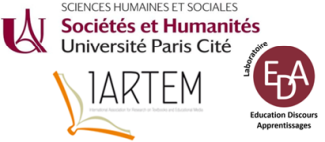Works by women in the history of music in Germany have often been neglected (Grow & Roth, 2023), and previous studies have shown that their invisibility is extended to Music and Art textbooks used in Brazilian schools (Fey e Rauen 2022). This work presents an overview of research about the presence of women composers in music textbooks in Brazilian and German contexts, within a timeframe from 2008 to 2023. Textbooks are pedagogical tools, supporting truths and acting as vectors of powerful communication through high distribution (Choppin, 2000). Thus, they play a crucial role in the musical formation of students, shaping their perceptions and understandings about music conceived within a selective tradition. In this sense, the presence or absence of women composers in these works can directly influence the construction of students' musical repertoire. A systematic bibliographic survey was done in Brazilian and German databases, searching for articles, dissertations, and theses discussing the presence of female composers in music textbooks. Attention was paid to the peculiarities of each context, using keywords such as “women”, “gender”, “composers”, “textbooks”, “schoolbooks”, “curriculum”, “underrepresentation”, “androcentrism”, and “music”. For the Brazilian case, the word “art” was included because music is part of the languages of the Art discipline. The keywords were combined in different ways, in Portuguese for Brazilian searches and in German for searches regarding textbooks used in Germany. In the Brazilian scenario, music was not regularly present in the curricula. The most important temporal marks were colonial times, orpheonic singing in the 1930s, artistic education in the 1970s, and art in the 1990s (Romanelli, 2019). The year 2008 was considered a symbolic milestone, marking the advent of law 11.769, making the teaching of Music mandatory in Brazilian schools. However, it was not as a specific course but among the artistic languages of Art. The research revealed that the concern with gender equity in teaching manuals and the curriculum was initially in the field of visual arts. There is research in history, geography, and English books addressing the invisibility of women, and in the specific area of music. Only one dissertation and six articles were found that discussed the issue of gender in textbooks. In the case of Germany, music is a subject with a historical tradition, despite the many variations between the curricula of each state and the types of schools. Research in the German context revealed a more robust discussion about the underrepresentation of women in music textbooks. Multiple German scientific articles have addressed the issue, signaling a greater awareness of the need to include women's contributions in musical storytelling. Discussions about promoting equity in textbooks are fundamental because, even if they are not used systematically, they are a curriculum reference for teachers who teach Music in both contexts. The underrepresentation of women composers in music textbooks goes beyond a mere information gap; it reveals a deep-rooted androcentrism in the materials available for the teaching of music. This androcentric perspective perpetuates gender stereotypes and limits the students' understanding of the richness and diversity of musical production throughout history. Furthermore, the fact that of women composers are not mentioned as such in Brazilian and German textbooks leads to the perpetuation of an androcentric habitus(Bourdieu, 2012), influencing the way students perceive not only music but also gender roles in society. This study emphasizes the importance of critical reviews of music textbooks and the discussion of these topics in the training of teachers because they are the agents who can interfere in the denaturalization of androcentric behaviors in new generations. In the Brazilian context, we signal towards a deepening of research on the analysis of educational manuals with a focus on gender diversity and intersectionality in Music Education. In the German context, despite more robust references, ethnic diversity and intersectionality still require further discussion in the analysis of educational materials, in order to overcome Eurocentric lessons. A more inclusive and equitable approach to the selection and presentation of musical content is crucial to promoting music education that reflects the diversity and richness of the global music landscape.
References
Bourdieu, P. 2012. A dominação masculina. Trad. Maria H. Kühner. 11 ed. Rio de Janeiro: Bertrand Brasil.
Choppin, A. 2004. História dos livros e das edições didáticas: sobre o estado da arte. São Paulo: Educação e Pesquisa, V. 30, n. 3, 549-566.
Fey, A. S.; Rauen, M. G. 2022. Currículo de Arte e equidade de género: existem compositoras? Revista Faces de Eva. Estudos sobre a Mulher, v. s/v, 57-75.
Grow, J.; Roth, A. T. 2023. Gender in den Fachdidaktiken ästhetischer Fächer: Forschung und Konzepte zu Unterricht und Lehrendenbildung. Verlag Barbara Budrich.
Romanelli, G. 2019. Research on music textbooks in Brazil. In: Rodríguez, J. R.; Garcia, T. B.; Bruillard, E. (ed.) IARTEM 1991-2016: 25 years developing textbook and educational media research. Santiago de Compostela: IARTEM.

 PDF version
PDF version
